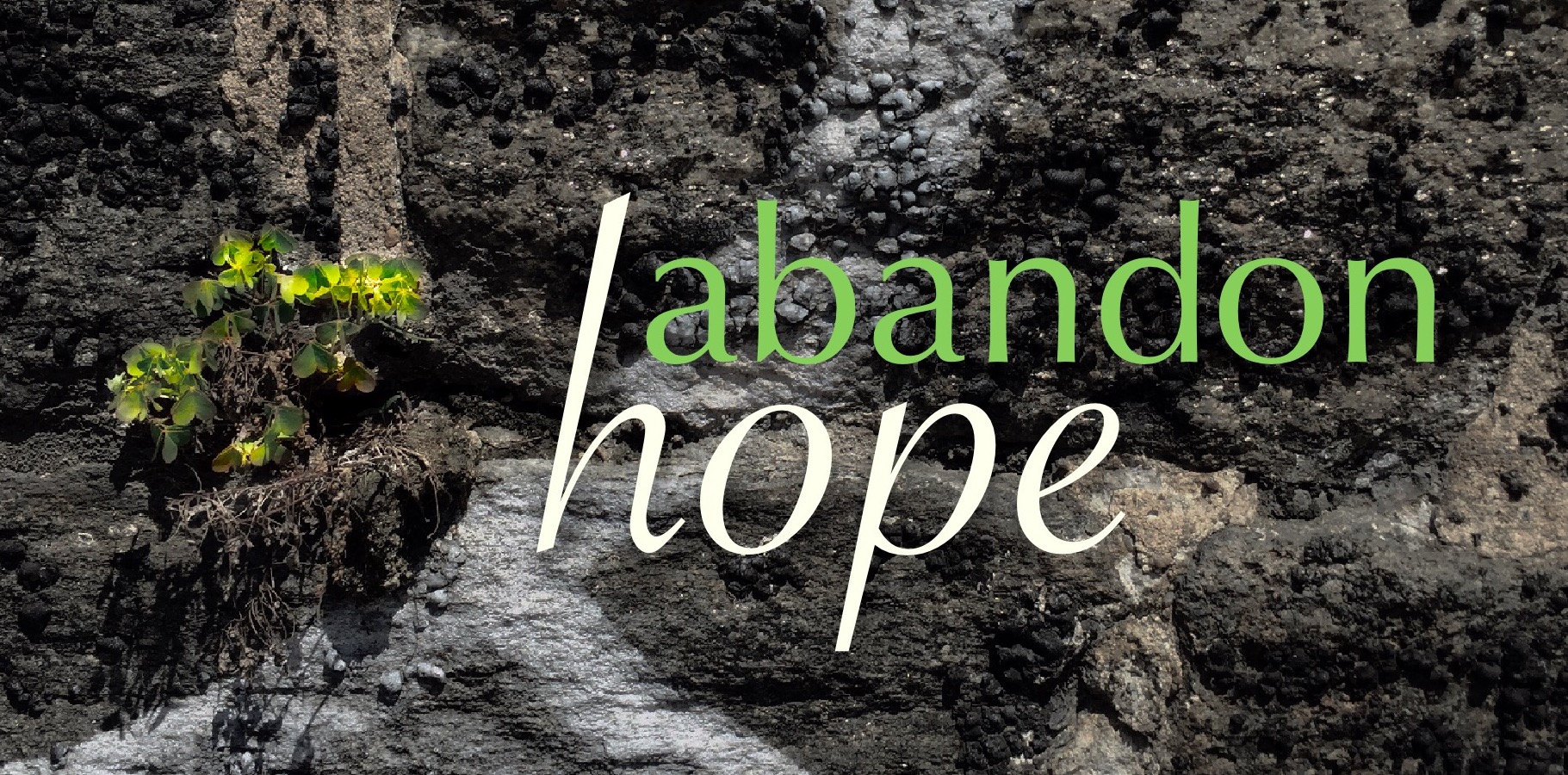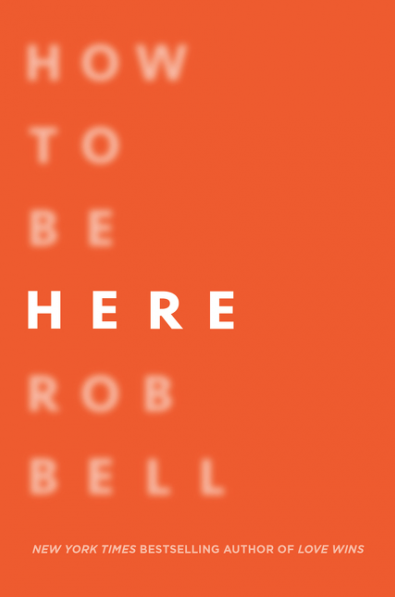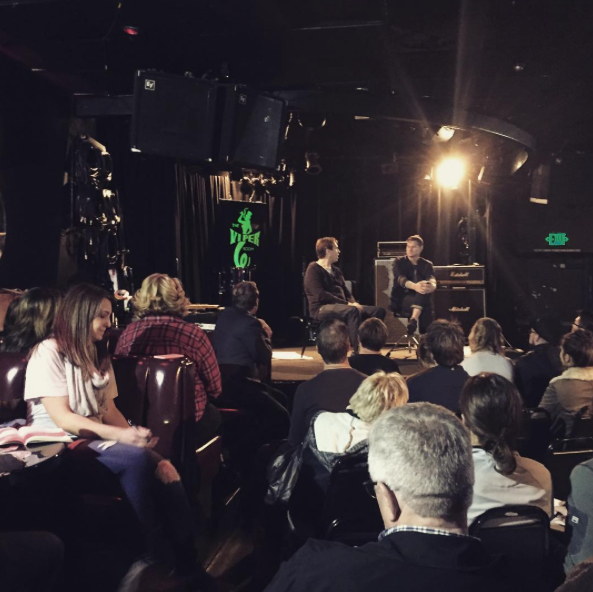You can pick up the book here.
I’m on sabbatical right now, and one of the books I’ve read is How God Changes Your Brain by Andrew Newborn, MD and Mark Robert Waldman. Reading it was a paradigm-shifting experience. And, it was so good that I immediately bought their new book How Enlightenment Changes Your Brain!
This is my third short video on this book, and this video is summary of their findings on anger.
I’m on sabbatical right now, and one of the books I’ve read is How God Changes Your Brain by Andrew Newborn, MD and Mark Robert Waldman. Reading it was a paradigm-shifting experience. And, it was so good that I immediately bought their new book How Enlightenment Changes Your Brain!
This is my second short video on this book, and this video is summary of chapter five. Look for subsequent short videos on aspects of this important work.
I’m on sabbatical right now, and one of the books I’ve read is How God Changes Your Brain by Andrew Newborn, MD and Mark Robert Waldman. Reading it was a paradigm-shifting experience. And, it was so good that I immediately bought their new book How Enlightenment Changes Your Brain!
Check out my short video intro to the book, and look for subsequent short videos on aspects of this important work.

I’m on sabbatical right now, and my “main” project is about creating a robust spirituality of hope. Below is small piece of this project, which is still very much in process.
By the waters of Babylon we sat down and wept.
When the Hebrew Bible wants to deal with pain, it turns to poetry.
Psalm 137 is one of those poems that scrapes the emotion off the sides of the human condition. It starts with weeping and it ends with white-hot anger.
While surveying the deep despair of the Babylonian captivity it sets sail directly into the midst of the storm.
And, as a part of the Book of Psalms it becomes not just a song for a particular time and place, but an example of what one can do when in the Valley of the Shadow of Death.
Blind optimism isn’t the faithful move. Looking for silver linings isn’t healthy or holy when someone has been knocked on their back by a crisis.
Truth can have a cold, dull edge to it, but at least it’s real. When it cuts you, at least you know what it is that you’re feeling.
The Israelites, captive in Babylon, acknowledged their brutal reality by weeping, and by hanging up their harps.
You can imagine a scenario where they might have just wanted to forget about it all. Where they might have succumbed to the temptation to just let it go and sing the old songs.
You know, to make the kids feel better.
To help everyone feel a little more at home. To forget about the bad times, and just move on. To find the silver lining in this new city, with its new rivers.
But, no.
They wept. They publicly displayed and abandoned their instruments of song.
Even when their captors asked them to sing one of their old songs, they refused. Those songs would not be sung here, because those songs are about a life there, and that life is no longer.
To sing here, now, would be an abandonment of reality.
After the horrific terrorist attack on the nightclub in Orlando, I visited the makeshift memorial outside the Stonewall Inn – the epicenter of the LGBT community in New York City. There were so many candles that even on a cool, breezy night, the air was thick with their warmth and scent.
Amidst a heavy police presence, people just stood there, or sat on the park benches, holding onto one another while quietly sobbing. The heat of the candles and the emotion caught me off guard. I had been carrying a weight around with me all day. It was the sadly all-too-familiar weight of sadness and anger and bewilderment over how in the world this kind of evil was even possible in the world.
But, it wasn’t until I was in the middle of a group of people who were actively grieving that the emotion inside of me came bubbling to the surface.
I sat there wondering if these quietly mourning people were mourning because they knew people who had been among the 49 victims. I wondered if perhaps they had been to that nightclub. If they had some personal connection to the madness.
But, their connection was probably the same as mine: we are all human beings, and one of our own had committed an atrocity against several dozen others of our own.
And all we could do is weep. And remember.
The drumbeat of Psalm 137 thumps against amnesia.
We sat down and wept, when we remembered you, O Zion.
If I forget you, O Jerusalem, let my right hand forget it’s skill.
Let my tongue cleave to the roof of my mouth if I do not remember you.
Remember the day of Jerusalem, O Lord.
The act of remembrance is a defiant one. It’s says that we will not just wipe the slate clean. We will not simply move on. We will carry this thing around with us, in our hearts, and in our souls. Remembering says that this thing that broke us will not be put in a drawer and forgotten, but rather we will graft it into our identity. It will become part of who we are.
And this is the existential move against fear. When we choose fear, we put the boogeyman in the closet or under the bed. We take it off the table and try to pretend that there is nothing to see here.
Remembering takes what could be feared and sets it out for all to see and says “now what are your going to do?”
And this all but guarantees that sadness will not be the end of the line. There will be more.
O Daughter of Babylon, doomed to destruction, happy be the one who pays you back for what you have done to us. Happy shall he be who takes your little ones, and dashes them against the rock!
It’s amazing that these verses are actually in the Bible. Truly.
Most churches never read them. The lectionaries which guide the Sunday readings of many Christian denominations cut off psalm 137 before we get to the nasty bits.
And, I get it. I really do.
It takes a mature faith to be able to pray the end of this Psalm. It takes a faith imbued with gravity.
But, to excise these words is to excise anger from the human condition. It denies what is there anyway.
It denies the truth.
To willfully ignore the end of Psalm 137 takes the language of searing anger out of the language of prayer. It says that anger isn’t something that we say to God. We leave that at the door.
Yet, to leave it at the door is, I think, precisely what allows us to so often act out of our anger. By keeping anger out of sight, festering in the recesses of our minds and on the edge of our culture, gives it a power that it doesn’t deserve.
Wanting to dash your enemies’ babies against the rocks is about as angry as anger gets.
But, by speaking it – by speaking the truth of what it is that you’re thinking and feeling – a release valve is set off, even if just a little bit. By saying it out loud, you might even hear yourself, and realize, “Ok, that was a little out there. I might need to tone that down a bit.”
Personally, I love that these words are in the Bible. Their very presence gives permission to acknowledge the full spectrum of human emotion, and to bring that spectrum to God, and among the gathered People of God.
These words keep religion from being bland politeness, and keep it tethered to the truth; what’s real.
If for no other reason than we can get past the anger, and what’s behind it, so that the better angels within us can find their voice. So that we don’t stay in the twisted whirlpool of hatred and anger, but so that we can move on to some form of compassion and grace that is still rooted in the truth that this thing happened, and because it happened I have been shaken to the core, and because the core of my being was shook I was able to choose the better way forward.
So weep. Hang up your harps. Remember. Cry out, and hold nothing back.
Choose truth.
This really is my Easter sermon. So, if you were coming to St. Mark’s on Sunday, and you wanted to be surprised, well, this is your #spoileralert
Officiant
Lord Jesus, you are the Prince of Peace and the Great Physician, and it is to you that we pray.
Intercessor
We pray, O Lord, for those who were so tragically killed in Brussels. We pray for all who love them, and all who grieve. We pray that they might find strength in you, and not be overwhelmed by their loss.
Lord in your mercy, hear our prayer.
We pray, for those who were injured. Those who lost limbs. Those who are in great pain. Those who lives will forever be changed.
Lord in your mercy, hear our prayer.
We pray, for those who witnessed horrible sights, for innocent bystanders, for the first responders, police, nurses, doctors, and all who are shaken to the core.
Lord in your mercy, hear our prayer.
We pray for those who are caring for the injured at this hour, that through them you would offer healing and life.
Lord in your mercy, hear our prayer.
We pray for the men and women of law enforcement who have long and difficult days ahead of them.
Lord in your mercy, hear our prayer.
We pray for the clergy and lay ministers who will tend to the needs of people in fear and grief.
Lord in your mercy, hear our prayer.
We pray for all the people of Belgium, and everyone across the world who live under the threat of terror.
Lord in your mercy, hear our prayer.
In the spirit of you, O Christ, who commanded us to love, and pray for, our enemies; we pray for those who seek to do others harm. We pray that their hearts be turned, and their minds and souls find healing.
Lord in your mercy, hear our prayer.
We pray for all who are called to keep us safe. We pray that they might have wisdom and strength to do the task that is set before them.
Lord, in your mercy: hear our prayer.
Officiant
And, we pray for the day when evil takes its last gasp. When the light finally, and thoroughly, snuffs out the darkness in this world, and the darkness which infects the hearts of people who do unspeakable wrong. Amen.
If this litany is helpful to you or your community of worship in any way, please feel free to use it, and to use it freely. You may amend, add, adapt, etc. in any way that you see fit. For this litany, attribution is not necessary.
 If you’re a take-no-prisoners kind of person with unending-creative-energy, who has great boundaries and a humble-yet-bold understanding of your place in the universe… Then this book isn’t for you.
If you’re a take-no-prisoners kind of person with unending-creative-energy, who has great boundaries and a humble-yet-bold understanding of your place in the universe… Then this book isn’t for you.
But, if you’re an aspiring creative who’s also from time-to-time a hot mess, then this book is exactly what the doctor ordered.
I was privileged to attend a two-day event with Rob in West Hollywood earlier this year on the creative process, and he noted that the number of people who just can’t get up off the couch is astounding. Midway through How To Be Here, I thought, “those are the people that Rob is speaking to with this book.”

Rob at The Viper Room on the Sunset Strip.
The more I read on though, the more I saw Rob’s target demographic being me. I mean, I love to create things, but I get scared-to-death too. I love to speak on a Sunday morning, but by Sunday lunchtime I’m mentally revisiting what I said earlier and cringing, furious with myself for being so embarrassingly bad.
I might seem pretty confident, but when it comes to swimming in self-doubt and loathing, I can be frequently found in the deep end.
I can also get stuck. My first book took me 8 years to write. Not because I’m that slow of a writer, but I kept shelving it. Over and over again I doubted that there was anything there that didn’t sound stupid. And so years would go by before I could summon the courage to pick it up again.
Rob’s new book is inspiration for anyone who is struggling to find the thing they were meant to do, for anyone who is struggling to see what they are doing right now as having any value, or anyone who is struggling with burnout and self-doubt.
In classic Rob Bell style, it’s written in such a way that the words just fall off the page. There was part of me that wanted it to be longer, but now I’m glad it’s not War and Peace, because what I really want to do is read it over and over again.
The part that I really needed to hear was his emphasis on surrender. You do what you do, but you have to surrender the outcome. What you do might become a bestseller or hang in a museum, or it might sit in a broken down box in your garage. You just don’t know. And you can either give into the fear of failure, or you can just do it and see.
You might just have lightning in a bottle, but you’ll never know if you don’t do it.
The part that I want to photocopy and hand out to most everyone I love (And, no, HarperOne I won’t be doing that.) is that the first thing you have to do is take what you’re doing right now, and do it as best as you can. You take what you do and turn it into a craft. If you’re stocking shelves, make it rain. If you’re flipping burgers, do it like an artist. If you’re making excel spreadsheets all day, then do it so well that the universe is a little easier to grasp in your rows and columns.
And then, with that as a springboard, find your path, and walk it fiercely.
Thanks Rob. Again.